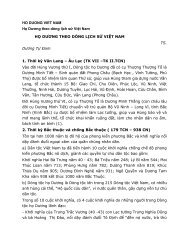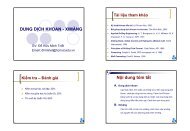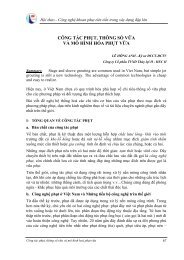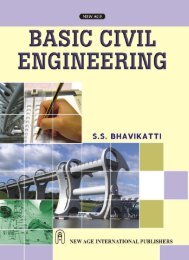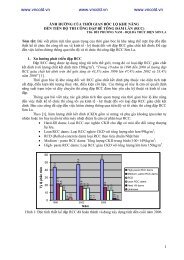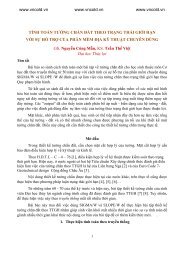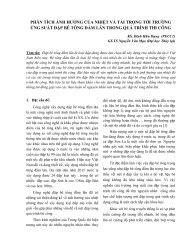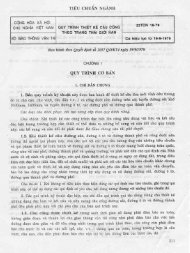Civil Engineering Project Management (4th Edition)
Create successful ePaper yourself
Turn your PDF publications into a flip-book with our unique Google optimized e-Paper software.
90 <strong>Civil</strong> <strong>Engineering</strong> <strong>Project</strong> <strong>Management</strong><br />
The advantage of employing an engineer who has to administer the contract<br />
impartially is that both the employer and the contractor can expect their interests<br />
to be dealt with fairly. Also when the contractor can expect fair payment<br />
for extra work ordered or arising from some unforeseen trouble, his risks are<br />
reduced, thus enabling him to submit his keenest prices. Both the employer and<br />
the contractor can, however, challenge any decision of the engineer by taking<br />
the matter in dispute to a conciliation procedure, adjudication, or to arbitration<br />
for settlement.<br />
Since the employer does not administer the contract he cannot issue an<br />
instruction direct to the contractor, he can only request the engineer to do so.<br />
But the engineer is bound by the terms of the contract, so if he finds he has no<br />
power to implement the employer’s request, or thinks to do so would amount<br />
to an unfair administration of the contract, then the employer has to put his<br />
request direct to the contractor for settlement outside the terms of the contract.<br />
This rarely happens, but as an example, if the employer wants the contractor to<br />
stop working for a day so that he can bring a party of visitors on site to view<br />
the construction, he has to seek the contractor’s agreement to this because the<br />
engineer usually has no power to order this.<br />
The engineer’s duties set out under the contract are extensive. Under the 7th<br />
(measurement version) of the ICE conditions these duties include the following:<br />
• Clause 5: explaining any ambiguity in the contract documents.<br />
• Clause 7: issuing any further drawings or details needed for construction.<br />
• Clause 12: confirming or deciding on any actions to overcome unforeseen<br />
ground conditions should these be encountered.<br />
• Clause 13: ensuring that the works are constructed in accordance with the<br />
contract.<br />
• Clause 14: checking that the contractor’s programme and his methods of<br />
constructing the works comply with any specified needs and permit the<br />
work to be finished without harm to the permanent structures.<br />
• Clause 36: testing or witnessing tests on materials either during manufacture<br />
or on the site, and (Clause 38) examining any work such as foundations<br />
which will be covered as construction proceeds.<br />
• Clause 41: fixing the date for commencement of the work and, (Clause 40)<br />
ordering suspension of the work or part of it if this proves necessary.<br />
• Clause 44: determining any extensions to the time allowed for completion<br />
of the works and (Clause 48) certifying when completion has been achieved.<br />
• Clause 51: ordering and (Clause 52) valuing variations to the works.<br />
• Clause 52(4): keeping records of facts relating to any claims made by the<br />
contractor and deciding the amount, if any, of extra payments due as a result.<br />
• Clauses 55–57: measuring and valuing the works constructed.<br />
• Clause 60: considering the amounts of interim and final payments to the<br />
contractor and certifying those amounts as are in his opinion due.<br />
• Clause 66: giving his decision on any disputes specifically referred to him;<br />
such decisions being subject to adjudication or arbitration if not accepted<br />
by the employer or the contractor.




